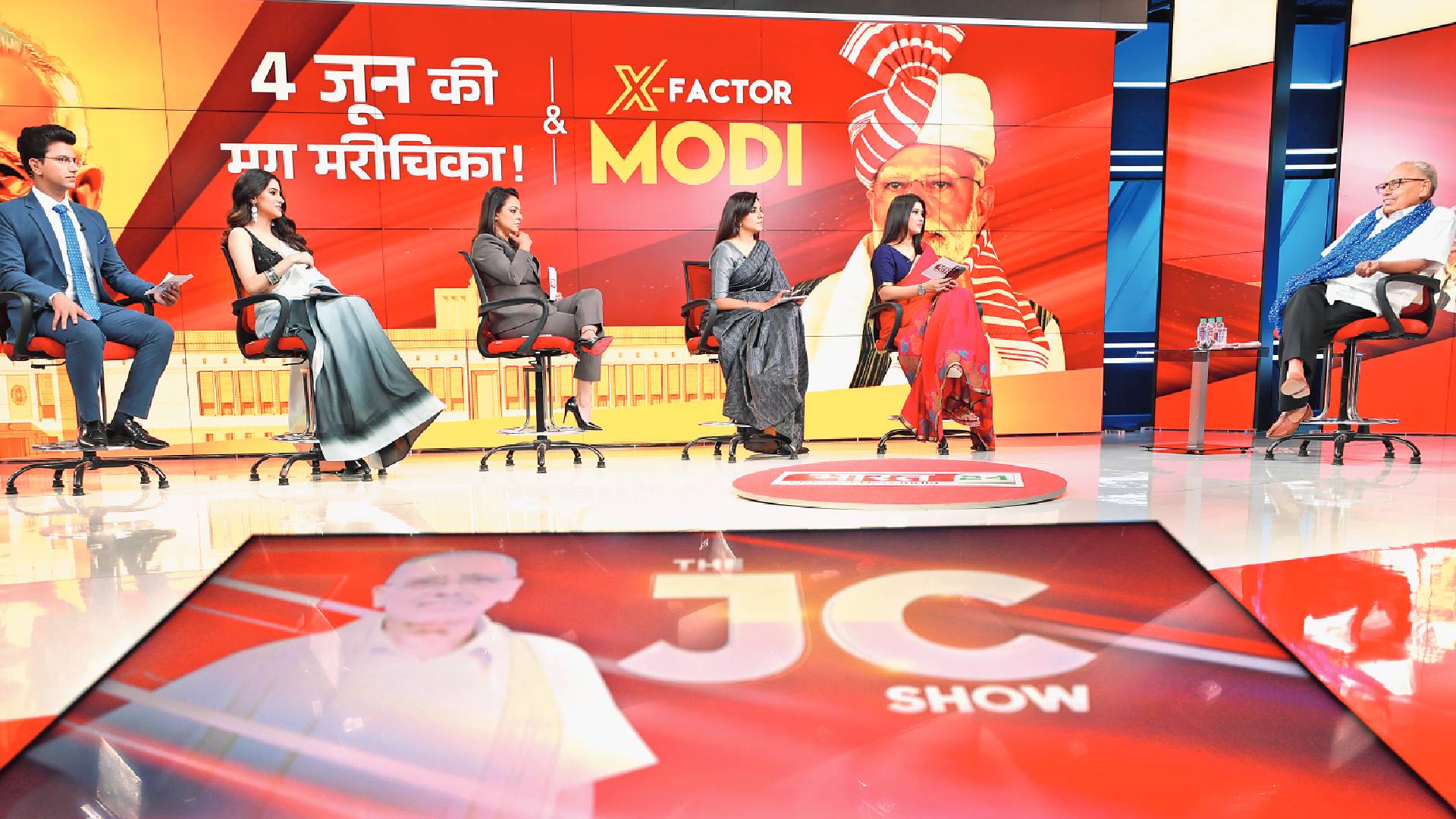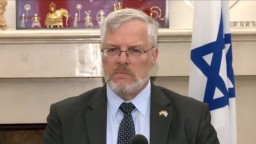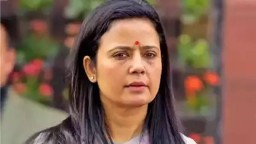Latest News
Even other nations believe that Modi is all set to come back for the third time: Dr Chandra

Reflecting on future politics and Narendra Modi’s likely re-election for a 3rd term, Dr Jagdeesh Chandra reveals that preparations are already underway for Modi’s oath at Rashtrapati Bhawan. He explains how Modi’s effective feedback system contributes to his success, why he disregards pre-poll and exit polls, why there could be possible changes in the council of ministers, with seasoned members and loyalists receiving key roles and why even before the election results are finalised, the agenda for the first 125 days of the next government is being planned. Excerpts...... (Part 2)
- Word in some political circles is that the preparation for Narendra Modi's oath ceremony has started. Is it really true?
Dr Jagdeesh Chandra: Brilliant question! I also feel so because mentally Narendra Modi has taken the Prime Ministerial oath this time around too. His PMO and other offices are already functioning as if there will not be a break in his tenure. In fact, foreign governments and people also believe that he will continue to be the PM. I think Putin has sent an invitation to PM Modi and he has accepted too. I have been told that an auspicious date was sought and it turned out to be June 14, but I don’t think the wait would be that long because Modi has to go to Odisha on June 10, if BJP comes to power, and I think he would prefer to go there as PM. I think that since results will be out on June 4, he would take an oath by the same evening, but then situations play a major factor in anything. As of today, I think he may take oath the same evening.
- What sort of election feedback system does Narendra Modi have? Does he really get undiluted feedback from the grassroots? Is it true that he is not really interested in pre-poll surveys and exit polls?
Narendra Modi and Amit Shah are masters of feedback systems. Such is their feedback that the private agencies are sometimes left in a tizzy that these two are miles ahead of them. I have heard that Modi has three types of feedback systems. First are the government agencies like IB, local police etc; second are private agencies, individuals and sources. There must be at least twenty IAS and IPS who would work for Narendra Modi out of allegiance and during elections, they are given the responsibility to give feedback. I felt that over the past few days, the concept of feedback perhaps overshadowed all other aspects. Feedback is a good thing, but extra feedback could be injurious to health. The first system of government agencies is extremely strong and reliable, but agencies have their limits. But I guess Modi has told them to be forthcoming regarding feedback without worrying about anything negative so the agencies must have given him feedback. The third feedback is from party workers and leaders. That, unfortunately, is almost zero these days because everyone is afraid and no BJP leader is in a situation of giving feedback. I asked a leader in Jaipur whether the final tally would be between 300 to 325 seats. He looked at me for a few moments and then said ‘400 paar’ (More than 400). I understood that he is afraid or is under pressure and hence he is unable to open up. This indicates that the once robust feedback system within the party has become oneway, with no one willing to speak up. Senior leaders must address this issue, encouraging party workers and leaders to share their true opinions without fear. Modi has never indicated intolerance for honest feedback, but the party culture has shifted towards self-censorship, fearing negative repercussions.
This situation is unfortunate, and the BJP must restore its previous feedback system, allowing everyone to freely share their thoughts, even anonymously if necessary. Currently, feedback is minimal, with many believing only senior leaders can speak up. Recently, I asked a minister about the projected seat count, suggesting it might be between 350-400. Initially, he was about to respond, but then he corrected himself, claiming it could reach 450. This indicated the pressure he felt.
JP Nadda should ensure the feedback system remains open and inclusive, or the BJP risks losing its connection with the masses. Narendra Modi’s bond with the people is vital, and unfiltered grassroots feedback is crucial. While the overall feedback system is effective, it’s essential to reconnect party workers to this process.
- Modi is known for introducing fresh changes after each election win. With the cabinet formation post-June 4, do you think we’ll see new faces in senior bureaucracy and the PMO?
It’s likely. Modi often brings fresh changes after an election win, as you pointed out. Regarding the council of ministers, while the BJP may not cross 400 seats, Modi is expected to secure a comfortable majority and could still make significant changes. The number of seats won’t deter him from following his plans. Therefore, he may perhaps not take revolutionary changes in this aspect, but on the flip side, the majority or number of seats does not affect him and he will do what he will set his mind to. So broadly, if we analyse, then see who is the second person after PM, it is Amit Shah and he has unlimited authority and it will stay like that. Practically, he is the only person who has any type of access and is a contributor too. After him comes Rajnath Singh who should be repeated, Nitin Gadkari should be repeated, Ashwini Vaishnaw’s authority should be increased as he did a lot of things this time around and he works discreetly and is trusted by Modi. Thereafter come the regulars like Dharmendra Pradhan, Bhupendra Yadav, Piyush Goyal and others. The biggest curiosity is regarding Om Birla who had a great tenure as Lok Sabha Speaker. When he was made Speaker, someone told me, he said that he didn’t know English and hence how will he tackle people from South India. He was told that the person in front of him did not know English either and yet they were running the nation, hence Birla too should get into the mode. He played the role of Speaker perfectly. He took the middle path between government and Opposition. If you look back, Birla was almost the consensus choice of the Opposition too and there was never any fight or feud between Birla and the Opposition. Leaders like Sonia Gandhi and others would visit Birla in the Speaker’s room in Parliament so I think he could be repeated. If it does not happen, then it will be curious to see which position he is given in the government because his seniority itself says that he may get a position near Amit Shah.
At the bureaucratic level, the cabinet secretary and home secretary have a few months left in their current assignments and it will have to be seen if they are given an extension. In the PMO, it is an exclusive subject with the PM, but people in PMO are so committed, valuable and unprecedented loyalists that it is difficult to visualise where will the changes occur. Under Modi, PMO’s working is extremely strong and I have always maintained that the success of any government would depend on CMOs in the states and the PMO at the national level. As of now, Modi’s PMO is the most efficient PMO in the world. Among the states, I have observed that when the Secretary to CM is weak, then the administration collapses. So a good thing about the Modi government is that the PMO is strong and effective. It is not everything to be loyal, rather you have to be effective, strong and perform. But one can’t deny any changes in the future within the PMO and it is a ‘wait and watch’ game till the government is formed.
- It is being said that work is being undertaken on the first 125 days after the new government is formed. What do you think will be the priorities of the Modi government?
In a single sentence, the priorities are the same, that is developed India. Now to elaborate on it one can say they will focus on youth, infrastructure, railways, transport, foreign investment, education, health and others. Basically, the focus will be on youth and how to further strengthen the global image of India. This work has already been delegated to secretaries of departments and work is ongoing. The action plan has already reached the PMO and in many cases PM has given approval too. For example, a competent officer has been brought to Prasar Bharati, to revamp it and this move means that the role of giving coverage to the government programmes, plans etc will increase in the days to come. I have heard that Prasar Bharati is bringing its own OTT. So the next 125 days after formation of government will be like a trailer for the next five years and observing Modi’s excitement, I think he will do every work at an extended pace. Modi works 20 hours a day and my good wishes to officers in the PMO because now he will work 22 hours a day to achieve the target he has set his mind to. TO BE CONTINUED…
During the show #JConModiXFactor trended top All-India on X

.png)


.jpg)



.png)

.jpg)
.png)


.jpg)

.jpg)


.png)

